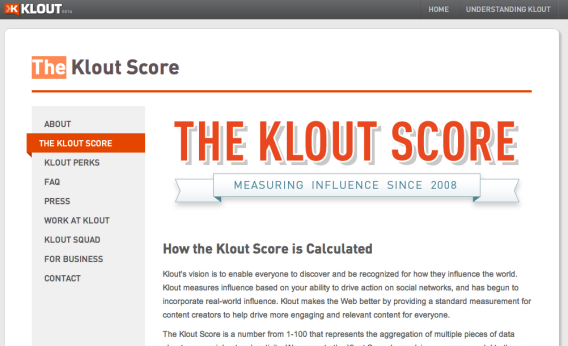Klout, the social media analytics startup that rates your online influence on a scale of 1 to 100, is no longer content to reduce you to a number based solely on your online activities. Now it tries to factor in how important you are as a human being, too.
The San Francisco-based company, which has been proudly stirring controversy since its inception in 2009, announced this week that it has tweaked the algorithm behind the scores it assigns to every social media user. It now rates you on 400 metrics instead of just 100, and some of the new ones have nothing to do with your Tweets or Facebook likes. For instance, your score will now go up if you’re important enough to have a Wikipedia page about you. And it might go up or down depending on your job description on LinkedIn.
As a result, previous Klout king Justin Bieber has seen his rating drop from 100 to 91, while Barack Obama’s score jumped from 94 to 99. (Does Obama’s job description on LinkedIn say “President?”) Mitt Romney gets a 90, despite having far fewer Twitter followers who are not bots.
Why should you care? Well, you probably shouldn’t, really. But people who have really high scores sometimes care because, increasingly, businesses are offering real-world perks and even better treatment to customers with scores that top a certain threshold, like 40 or 50. And people with low scores care because, hey, they’re important too, dammit, even if they don’t spend all day twittering or linking in or whatever the kids call it.
Unlike Klout’s last major algorithm change, this one hasn’t sparked a lot of outrage outside of Bieber-land—perhaps because the company made sure that most people’s scores went up.
Correction: This post originally misspelled Justin Bieber’s last name.
